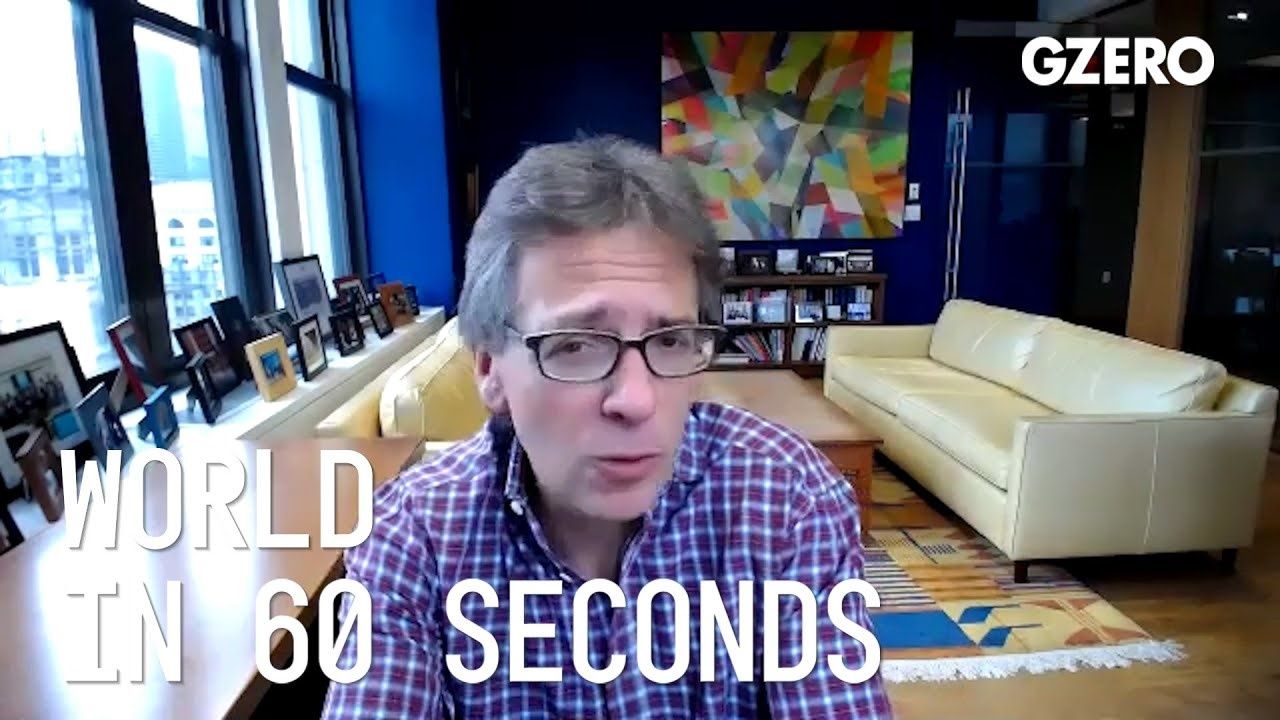On the latest edition of World In 60 Seconds, Ian Bremmer brings an extra-long analysis to pressing issues:
Pandemic, economic depression and now mass protests. What's next for America?
I'm not surprised by this level of dissent publicly, given how long social inequality has persisted and how much worse it's being made by coronavirus. You're going to see a lot of people on the streets because we've got 25% unemployment right now. A lot of people are going to go back to work, but a lot aren't. It's heading towards the summer, people are soon coming out of lockdown and may feel safer in terms of the pandemic, especially in NY and in LA where the caseload has gone down. We also have very deep divisions.
Trump was at 42% approval when we had lowest unemployment. He's at 42% approval now when we have global depression. This says a lot about how divided the country is. This has been on the back of the African-American community. Blacks have been hardest hit in the United States in terms of inequality and now in terms of coronavirus too. How many are dying, how many can't socially distance, how many have jobs that have gone away or require work in unhealthy situations? The Blue Lives Matter contingent, the working class white folk, also feel disenfranchised, their wages are flat and they don't feel secure. This is a massively polarized group and there is less space in their center than before.
With election coming right now in the US, you're probably going to see violent protests for longer. Keep in mind that the media focuses on the violence and riots. If you watched last night, the peaceful protests didn't make news. Instead, it's who broke windows, hit police, got arrested. It's the minority of people out there, but it's what the news and social media cover. With all of this and with a president who understands that the way he wins is not by reaching out to black Americans, but by ensuring that his base shows up in larger numbers, implies much greater division at a time of great economic disarray and dislocation. The next few months are going to be really ugly in the US.
With inequality protests going global, where does that leave coronavirus and social distancing?
I'd say be less oriented towards panic around this. The super spreader incidents we've seen in a nightclub in South Korea, a bunch of churches, and a chorus group in Seattle, all have a commonality: people are singing. In Wisconsin, they found one outdoor demonstration that led to fifteen people being found positive. That's a lot less than the 50% outside of Seattle, Washington, who were socially distanced, but inside a room singing for three hours. Here in NYC, I saw a large-scale demonstration, about 70% to 80% were wearing masks. There was a decent amount of social distancing, nothing like what we saw at the Ozarks. Most people that are demonstrating about Black Lives Matter and police brutality don't have a thing about wearing mask. Most people that were demonstrating the lockdowns, there is a political statement in not wearing a mask. My hope, based on some science, is that relatively short-term protests outdoors with many people wearing masks, probably won't get you the super spreader incidents that we have seen.
Having said that, the protests grow, and you get a lot of people protesting in close quarters and going up against the police. The police weren't any better at wearing masks last night than the protesters were in terms of numbers. You'd be more concerned about that.
Hong Kong banned the Tiananmen Square vigil for the first time, coming up on June 4th. What does that say for its autonomy?
They're saying they banned it because of concerns of coronavirus in Hong Kong, one of the most effective paces in the world at containing the virus. Doesn't seem to be the priority for the legislature. They've been trying to work on making it illegal for people to speak badly of the Chinese mainland. I think it's a bit of misdirection. It's about wanting to assert more authority over Hong Kong. It probably says that Macao and Hong Kong are not, not going to be allowed to protest Tiananmen Square going forward. Let's see what happens with Macao going forward. The United States has put the Chinese and Hong Kong on notice, but the level of sanction is less than it could be and not close to removing special trade status.
More For You
100 million: The number of people expected to watch the Super Bowl halftime performance with Bad Bunny, the Puerto Rican superstar and newly minted Album of the Year winner at the Grammys.
Most Popular
Think you know what's going on around the world? Here's your chance to prove it.
An imminent US airstrike on iran is not only possible, it's probable.
Americans are moving less — and renting more. Cooling migration and rising vacancy rates, especially across the Sunbelt, have flattened rent growth and given renters new leverage. For many lower-income households, that relief is beginning to show up in discretionary spending. Explore what's changing in US housing by subscribing to Bank of America Institute.
